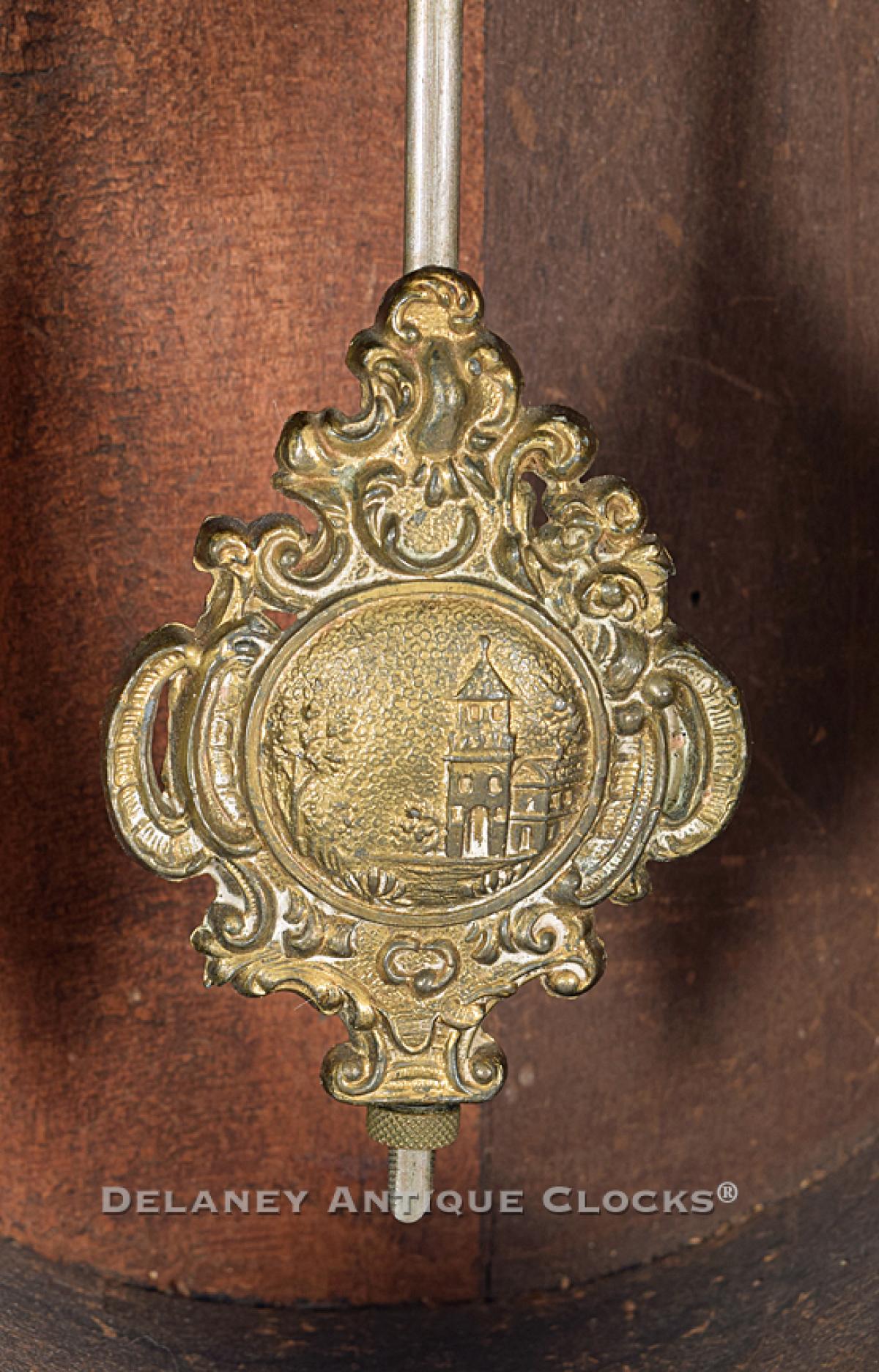E. Ingraham & CO. Bristol, Connecticut. The "Dew Drop" wall clock. 221001.
This wall model is called the “Dew Drop.” This is a very popular model, and it usually sells well. The movement is constructed in brass, and the front plate is die-stamped by the Maker. It is a time-only design and is powered by a coil spring. It is designed to run for eight days on a full winding. The paper dial is original to this clock. It measures 12 inches in diameter. The paper is applied to a tin pan. This dial has slightly darkened due to human contact when winding or setting the hands to the correct time. The fancy pendulum is visible through the lower door.
This clock measures approximately 23.5 inches long. It was cataloged in 1909.
Inventory number 221001.
Elias Ingraham was born in Marlborough, Connecticut, on October 1, 1805. He worked as a cabinetmaking apprentice for five years in Glastonbury. In 1825, he purchased his freedom and began working as a journeyman for Daniel Dewy of Hartford. In 1828, Solomon Hinman convinced him to move to Bristol and to make clock cases for George Mitchell. It is here that Ingraham designed and constructed the “Transitional” shelf clock form. Ingraham soon moves on and works for several other clock and furniture ventures. After numerous ventures, he formed the Elias Ingraham & Company in 1857 and was granted the first two patents in case design. The first was for the “Arch Column case, and the second was for the door design found in this example, having two circular doors separated by decorative rosettes. This design became extremely popular, and its influence finds its why in some of Ingraham’s competitor’s models. In 1860, the firm’s name changed to E. Ingraham & Company, reflecting a partnership with his son Edward. Elias died at his summer home on Martha’s Vineyard in August 1885. The business continued in various forms.










